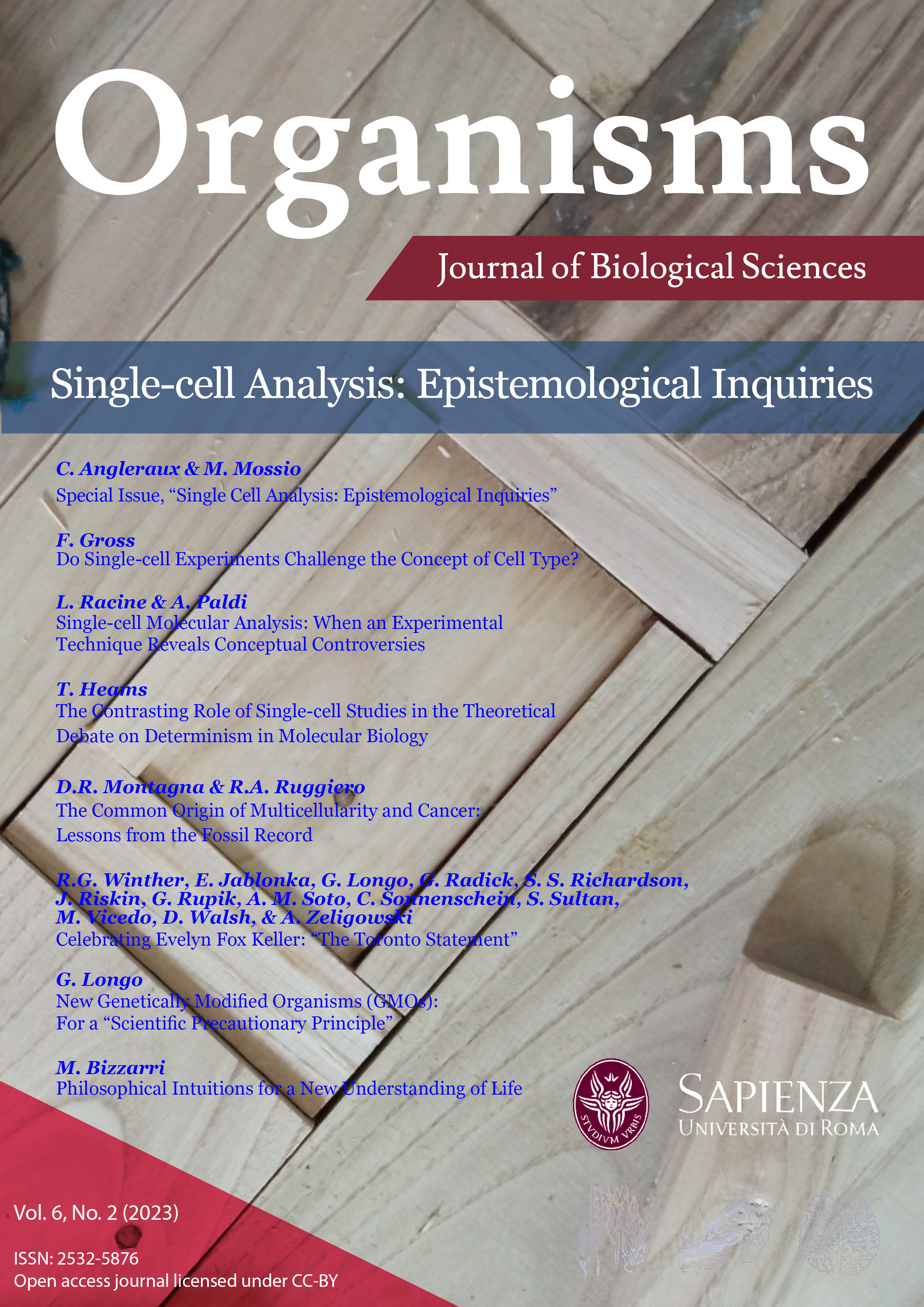Single-cell Molecular Analysis: When an Experimental Technique Generates Conceptual Controversies
DOI:
https://doi.org/10.13133/2532-5876/18129Abstract
The last decade has witnessed a rapid evolution of highly sensitive single-cell molecular analysis techniques. These techniques allow the simultaneous detection and quantification of mRNA and protein molecules in a large number of individual cells. Some of these methods are already commercialized, making them readily available to any interested lab. While the pitfalls concerning the experimental extraction of biocomponents (mRNA and protein) and analytical bioinformatic methods are widely discussed in the literature, little is known regarding the conceptual difficulties raised by single-cell methodologies. Considered and treated as pure technical difficulties, these issues are rarely discussed explicitly. This is a problem as conceptual difficulties precede technical ones and contribute, to a large extent, to the failure of techniques. Consequently, a new theoretical framework is urgently needed to make sense of the ever-increasing amount of data.
Downloads
Published
How to Cite
Issue
Section
License
Copyright (c) 2023 Andras Paldi, Racine Laëtitia

This work is licensed under a Creative Commons Attribution 3.0 Unported License.
Copyright Agreement with Authors
Before publication, after the acceptance of the manuscript, authors have to sign a Publication Agreement with Organisms. The authors retain all rights to the original work without any restrictions.
License for Published Contents

You are free to copy, distribute and transmit the work, and to adapt the work. You must attribute the work in the manner specified by the author or licensor (but not in any way that suggests that they endorse you or your use of the work).





